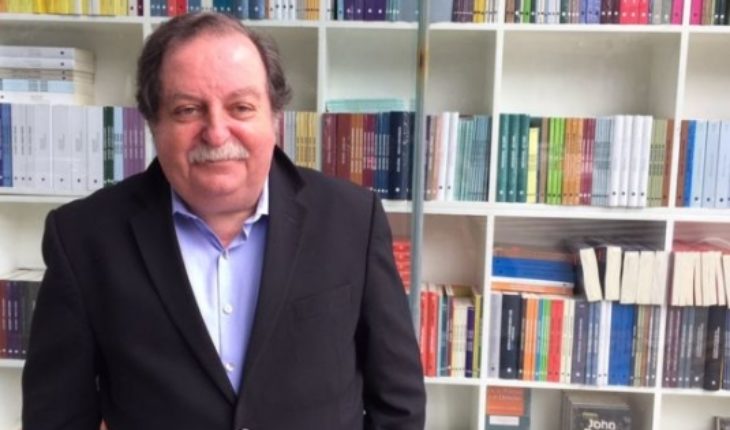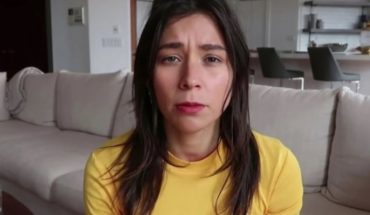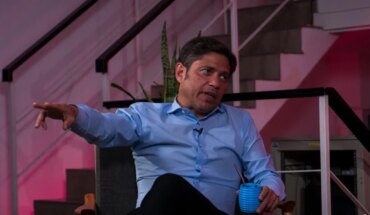However, José Gordon, one of the divulg most renowned scientific researchers in Mexico, has found a successful way of explaining the most innovative science concepts: alternately with poetry or literature.
“You must be careful not to confuse the methodologies. Science has rigor, the literature has another rigor. But, when you entremezclas both stories, by Association, you’ll more easily opening the connection between concepts that sometimes were not formed in our minds,”says.
Gordon said that this method is what has worked in “The electric sheep”, which is the scientific program more veteran of Mexican television, with more than 11 years on the air.
“I glad that there is interest in science and do me such interesting questions”, said after seeing the amount of questions that the readers of BBC World sent.
He also author of the book “The inconceivable universe”, chatted non-stop a couple of hours, mixing their responses. It focused on science communication. BBC World presents a summary here.
What are the keys so that a programme of this kind can be increasingly interesting? asked René Roca, La Habana, Cuba, but several readers were interested in the same topic.
Apart from what I already told, intersperse with poetry or literature, unpublished concepts should be things with humor. Science is wonderful and should be shared with emotion.
It should take into account, in addition, that the Association is a very important process for understanding.
In the story “Funes el memorioso”, Borges puts it very clearly: have all the memory in the world doesn’t mean that you’re understanding. You understand when to connect the points. Then the key to understanding is to seek the essence that connects one point with another.
Gordon said that in the story “Funes el memorioso” Borges that you have good memory does not understand it have raised is that when you mix two strange tales from different worlds, but that somehow they can be correlated, the Association facilitates.
What happens with science communication is that, if there is an interesting story, it is that you will want to know more than this and going to specialized books, teachers, friends, and thus you will expand your circle and space of knowledge.
Some readers were interested in whether science will help the survival of humanity and to solve their main problems. As Fernando, Hidalgo, Mexico, who wanted to know what the future of the common human in a world dominated by the artificial intelligence?
The historian Noah Yuval Harari has a very interesting book called “Sapiens: animal gods”.
Harari said that we are moving so rapidly that the possibilities that we are opening up with science and technology are enormous, but quehacia we go depends on whether we use intelligent and generous knowledge.
You can use it selfishly and already.
For example, can increase the time and quality of life, but only for some few, to the richest.
Thus, Harari raises, as a species, we need to pause to reflect what you want.
In other words, there are possibilities, but if we don’t know what we want, we can even destroy us.
We must answer the question what kind of world we want to? and make a map.
Harari poses we need to pause to think about what we want for the futuroYo believe that to make this agenda we need empathy, imagination and knowledge.
The answer to whether science will help or not that we solve these problems is related deeply to know what we as humanity.
Some readers asked Gordon to explain what unites such different worlds as both art and science have to do with curiosity and the ability to surprise.
Also, they discover worlds and related finds: reveal what was previously invisible.
The Science see us layers of nature, the literature of the feelings, the wishes of others, why a character acts as it does.
Both science and art go to widen the look and in that sense is where talk of a certain spirituality that share.
A spirituality that doesn’t have to be attached to religion in traditional terms, but rather to the religion of wonder, say somehow.
In the film “The theory of everything”, when Stephen Hawking knows who would be his wife and asks what studies, he replied that it is a cosmologist. “What is that?” Asks her. “It’s religion to intelligent atheists”, he replied.
Gordon encouraged not to lose the ability to asombroPor other side, both science and literature communicate us that are distant worlds: science through equations, the literature through metaphors.
Both are United by our passion for understanding, which we all have when we are children. Unfortunately, it fades when they are telling us that we already do not ask.
The good news is that both science and literature, say you that you keep asking, experimenting, seeing the complexity of the world.
To my like me to quote Bruno Schulz: “must mature to childhood”. It is say, go always towards curiosity, follow us to amaze and leave behind our prejudices, which are old concepts.
Another good news is that you need not be scientific to enjoy the findings of science and don’t need to be a novelist to enjoy the findings and revelations of the literature.
These two forms of knowledge give us the possibility of being more sensitive and critical.
Why it says that we have lost the ability to imagine? (Francisco Chalad, San Carlos of Zulia, Venezuela)
For me the key problem that it is behind the various crises that we live is the lack of imagination and critical thinking.
Of imagination that you remove boundaries from where you are viewing things to try to deal with thinking critical problems in new ways.
His most recent book explores the poetry in the curious Cientificoes thought, but critical thinking is precisely an imaginative thinking: who says that something goes wrong and we must look at other ways of doing it.
Systematic solutions, informed, coherent, requires interdisciplinary thinking, which exceeds the borders of what we usually imagine.
The philosopher Gaston Bachelard said that imagine is to go beyond the first images, which are that has given us our education and our prejudices.
I am convinced that both science as art open gaps in our perceptual boxes to see further away from that surrounds us, the first image we are confined.
After his approach with different and distinguished personalities of international science, what are the characteristics shared by? (Pedro Garcia, State of Mexico, Mexico)
In my experience there is a constant: more are great in their scientific work are more humble.
In addition, they have a deep desire to share their knowledge if the exercise of research before and ask with a genuine look.
Gordon has interviewed scientists from Fame internacionalYo have not found a scientist who does not want to communicate those findings. It occurs naturally if the dialogue is valid, respectful and full of research.
When you interviewed great scientists, would on occasion you stay without understanding the answer or know to ask more? (Daniel Chavez Fragoso, city of Mexico, Mexico)
When I do not understand I again ask the question on the other hand.
One has to say I do not understand, I explain from another angle? and if you do it in a genuine way the scientist will try to help you.
Also, what happens is that knowledge opens in layers, both in literature and science.
It is different to how you understand a poem at the age of 18 and how understand it after more experience. Somehow, when you have more maps, by Association, you are interconnecting different worlds.
Some readers also asked Gordon about new trends in the creation of knowledge biologist Deborah Gordon of Stanford study the collective behavior of ants and discovered that they do not have a central authority.
The algorithm, or the series of steps to guide them, are given Ant after Ant rubbing their antennae. And that algorithm is the same as the internet. Told in a funny way, the ants discovered “anternet”.
We are discovering intelligent anarchies, new forms of communication of society that do not pass through the authoritarian patterns.
More and more we will discover collective behaviors that will help us to advance in the knowledge.
“We are discovering intelligent anarchies”, says GordonPor example, mathematical problems that are placed in nets and which are resolved collectively by several people, from a winner of the Fields Medal (equivalent of the Nobel Prize in mathematics), by a high school teacher and other enthusiasts. Each is doing their part.
Is like the “exquisite corpses” of literature where I write a verse and you just have to give the final word and you have to follow, bringing words and images that are not on my radar. The result ends up being something that comes from the mind of different people.
Thus, in different ways, we will be making greater use of our collective imagination thanks to networks that already exist.
Therefore, we have to think of ways to stimulate collective consciousness and imagination.
The physicists Albert Einstein and Niels Bohr sent letters, but they spent months among which came its response. What would have its communication been in times of internet?
Now the flow is much faster.
There are ideas that take time in settling, but the ability to communicate and share knowledge faster is possible more than ever.
Lack of imagination is behind the big problems, says Gordon how science and art can compete in a flooded world of entertainment?, asked several readers I believe firmly in the seduction of knowledge. When you discover something interesting, that opens up the look, once you catch already there is no turning back.
I’ve seen it with children in public schools where we share the “Imaginantes” (one minute animation capsules). There were those who thought that children would not understand.
but it did not, children opens them look to discover the beauty that is there in learning something new, the knowledge. They liked so much they got up early to see capsules.
The poet Luis Ruiz described it perfectly: we can not live as if beauty exists.
The day you learned something new you know what happened something beautiful in your life. If we were more accustomed to it, the passion for learning would be greater.
BBC is a close example: it is a public television and however it has had the intelligence to create dramas of good quality to compete with private channels.
“Children opens them eyes to discover the beauty that there is to learn something new”, says GordonMe agree that the poet Álvaro Mutis said that a child should never force him to read, that it needs to do so with passion.
However, you can’t get by Don Quixote if you’re not ready for that.
You have to start by authors who echo him and hence will continue with other things.
They have done very well in Mexico with a project called headlights, which invites the reading in the city difficult areas. Librarian chat with young people and gives them to read things that have to do with your reality.
This is an important point: to make knowledge attractive, more criticism beyond their capabilities, fascination, must connect with your reality, your world, and give practical solutions to what you live.
Knowledge must connect with your reality and give you solutions practices, it says GordonSiendo, I don’t know anyone who does not want to have more knowledge.
Sam Pitroda technology expert told me it is more important to have knowledge to share knowledge.
Knowledge, in turn, has organizational: gives the company possibility to require science-based solutions.
Gordon also said that knowledge, with all its rigour, should also be reported in a friendly way, with joy, and even humor.
At the end of his program, “The black sheep”, sings a song related to the topic that was discussed.
Here he sings a ranchera that speaks about the possibility that there are parallel universes.





